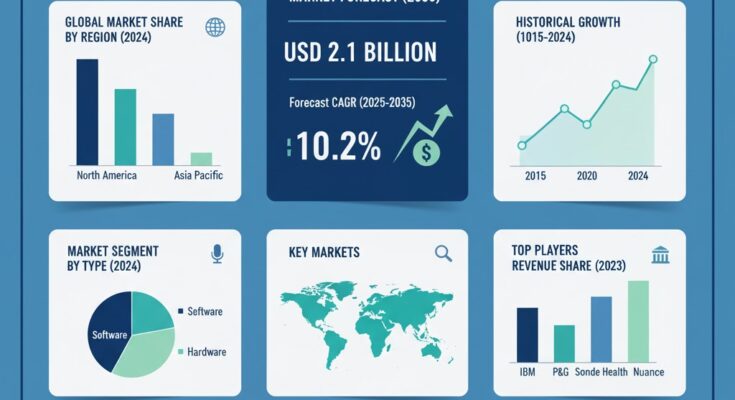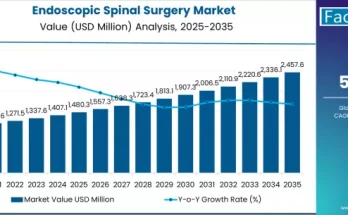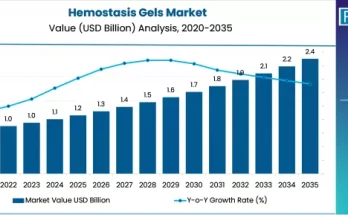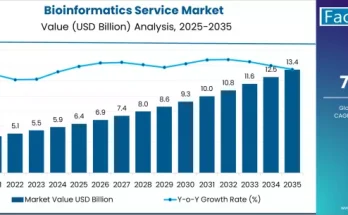The global vocal biomarker market is set for robust expansion, driven by the growing adoption of artificial intelligence (AI) in healthcare, rising demand for non-invasive diagnostic tools, and advancements in voice analytics technology. Valued at USD 780.0 million in 2025, the market is projected to reach USD 2.1 billion by 2035, recording an absolute increase of USD 1.3 billion and a strong CAGR of 10.2% over the forecast period.
Vocal biomarkers unique voice-based indicators that reflect physiological and psychological conditions are emerging as a revolutionary tool for diagnosing and monitoring diseases such as Parkinson’s, depression, Alzheimer’s, and respiratory disorders. By analyzing subtle variations in tone, pitch, rhythm, and speech patterns, these technologies are paving the way for early detection and real-time health monitoring.
Market Drivers: AI Integration, Mental Health Focus, and Remote Patient Monitoring
Rising Demand for Non-Invasive Diagnostic Solutions
The healthcare industry is witnessing a shift toward non-invasive and patient-friendly diagnostic methods. Vocal biomarkers enable clinicians to monitor disease progression or treatment response without physical samples, reducing cost and discomfort. As remote healthcare adoption rises, these technologies are being increasingly integrated into telemedicine and mobile health platforms.
AI and Machine Learning Revolutionizing Voice Analytics
Advancements in AI, machine learning (ML), and natural language processing (NLP) are enhancing the accuracy of vocal biomarker analysis. AI algorithms can detect minute changes in voice signals linked to neurological, respiratory, or psychological conditions, allowing for early intervention. Integration with wearables, smartphones, and virtual assistants is expanding the accessibility and scalability of these systems.
Focus on Mental Health and Neurodegenerative Diseases
Vocal biomarkers are showing high promise in mental health assessment—detecting depression, anxiety, and cognitive decline through voice modulation analysis. This is driving adoption across psychiatric care, cognitive testing, and elder healthcare. Research collaborations between tech startups and academic institutions are further accelerating innovations in this space.
Technological Developments: Cloud-Based Analytics and Voice-Enabled Screening
Recent innovations are centered around cloud-based AI platforms, enabling real-time voice data collection and processing at scale. Healthcare providers are leveraging voice-enabled diagnostic tools integrated into telehealth systems for early disease detection and patient engagement. Continuous advancements in deep learning models and signal processing are also improving predictive accuracy, paving the way for clinical-grade voice biomarkers in routine diagnostics.
Regulatory and Clinical Landscape
Regulatory bodies are gradually recognizing the clinical value of voice-based diagnostics. Pilot programs and validation studies are underway across the U.S., Europe, and Asia-Pacific to standardize protocols and ensure data privacy compliance under frameworks like GDPR and HIPAA. As these technologies move toward medical-grade certification, partnerships between healthcare providers, AI developers, and regulatory agencies are becoming increasingly critical.
Competitive Landscape
The vocal biomarker market is highly competitive, with tech innovators, AI specialists, and healthcare companies working together to develop robust diagnostic ecosystems.
Key Players in the Vocal Biomarker Market:
- Sonde Health
- Beyond Verbal
- AudEERING
- Cogito
- IBM Watson Health
- VoiceSense
- Healthymize
- Winterlight Labs
- Kintsugi
- Modality.AI
These players are focusing on expanding their product portfolios through strategic collaborations, AI-driven research, and the integration of vocal biomarker technology into telemedicine platforms. Investments in clinical validation, mental health applications, and cross-platform integration are strengthening their competitive positioning globally.
Recent Developments
- August 2025 – Sonde Health launched a voice-based screening tool for early detection of chronic respiratory conditions using smartphone microphones.
- June 2024 – IBM Watson Health collaborated with academic researchers to integrate vocal biomarkers into predictive analytics systems for neurodegenerative disease management.
- March 2024 – Kintsugi secured funding to scale its AI-powered mental health voice analysis technology across digital therapy and telehealth platforms.
Regional Insights
United States – Global Leader in Voice-Based Healthcare Innovation
The U.S. leads due to strong AI research ecosystems, high healthcare digitization, and growing prevalence of chronic diseases. Regulatory progress and venture capital funding are driving commercial adoption of vocal biomarkers in clinical and telehealth applications.
Europe – Supportive Research Environment
Countries such as Germany, the U.K., and the Netherlands are at the forefront of clinical research and AI ethics in healthcare. European companies are pioneering voice-based solutions for cognitive health and emotional analytics.
Asia-Pacific – Fastest Growing Market
Rapid digital transformation, rising healthcare expenditure, and the proliferation of smartphones are accelerating adoption in countries like Japan, India, and China. Government-backed AI initiatives are further supporting the integration of vocal biomarkers into healthcare frameworks.
Future Outlook: Voice as the New Vital Sign
The next decade will see vocal biomarkers evolve into mainstream diagnostic tools, supported by:
- AI-Powered Predictive Health Models – Voice-based early detection for chronic and mental health conditions.
- Integration with Wearables and Virtual Assistants – Continuous, passive monitoring of patients.
- Cross-Language Diagnostic Systems – Expanding accessibility across global populations.
- Enhanced Data Privacy and Clinical Validation – Building trust and regulatory acceptance.
By 2035, vocal biomarkers are expected to become a key component of personalized, preventive, and remote healthcare, transforming how diseases are detected, managed, and treated.



